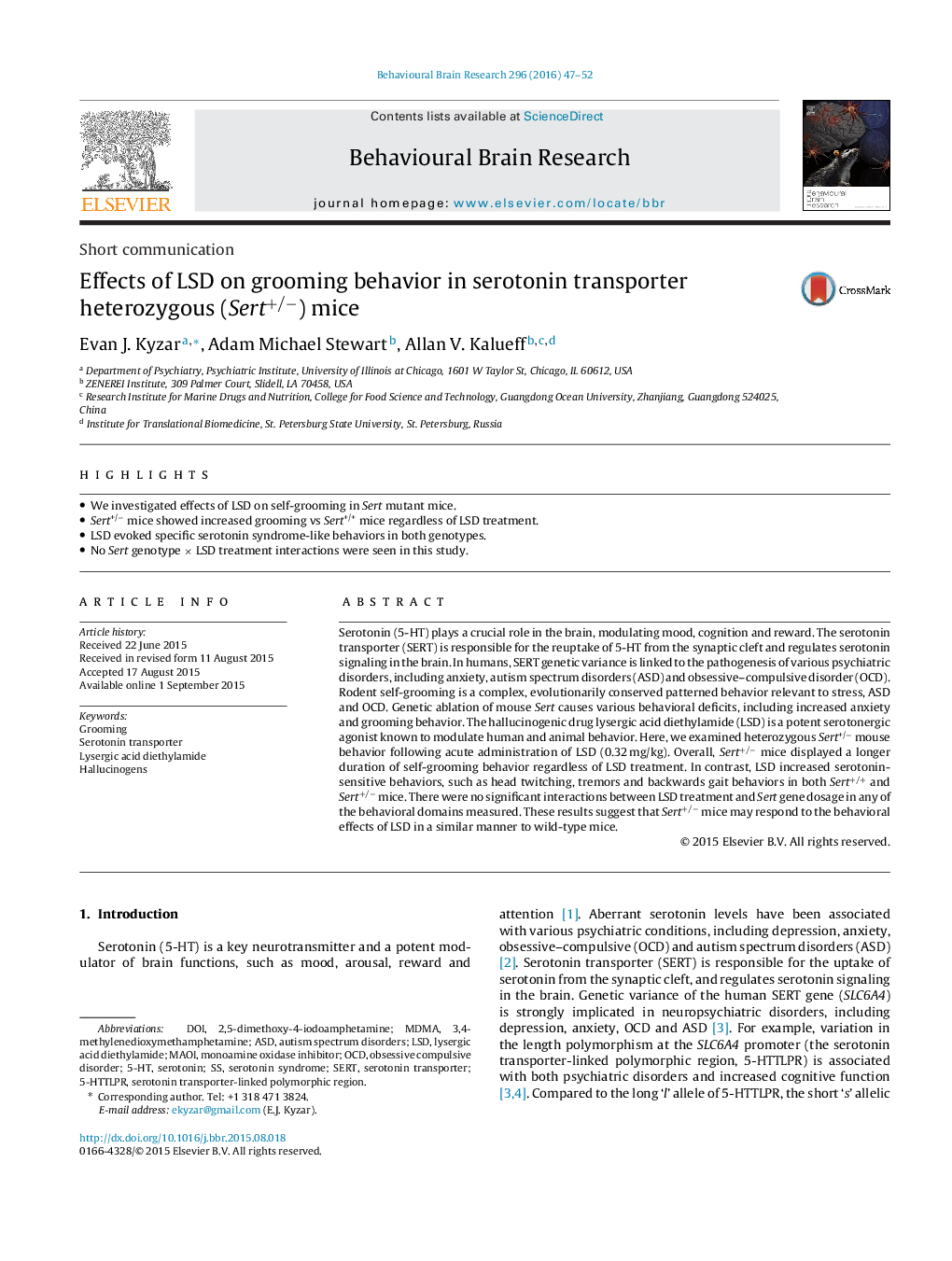| کد مقاله | کد نشریه | سال انتشار | مقاله انگلیسی | نسخه تمام متن |
|---|---|---|---|---|
| 4312359 | 1612936 | 2016 | 6 صفحه PDF | دانلود رایگان |

• We investigated effects of LSD on self-grooming in Sert mutant mice.
• Sert+/− mice showed increased grooming vs Sert+/+ mice regardless of LSD treatment.
• LSD evoked specific serotonin syndrome-like behaviors in both genotypes.
• No Sert genotype × LSD treatment interactions were seen in this study.
Serotonin (5-HT) plays a crucial role in the brain, modulating mood, cognition and reward. The serotonin transporter (SERT) is responsible for the reuptake of 5-HT from the synaptic cleft and regulates serotonin signaling in the brain. In humans, SERT genetic variance is linked to the pathogenesis of various psychiatric disorders, including anxiety, autism spectrum disorders (ASD) and obsessive–compulsive disorder (OCD). Rodent self-grooming is a complex, evolutionarily conserved patterned behavior relevant to stress, ASD and OCD. Genetic ablation of mouse Sert causes various behavioral deficits, including increased anxiety and grooming behavior. The hallucinogenic drug lysergic acid diethylamide (LSD) is a potent serotonergic agonist known to modulate human and animal behavior. Here, we examined heterozygous Sert+/− mouse behavior following acute administration of LSD (0.32 mg/kg). Overall, Sert+/− mice displayed a longer duration of self-grooming behavior regardless of LSD treatment. In contrast, LSD increased serotonin-sensitive behaviors, such as head twitching, tremors and backwards gait behaviors in both Sert+/+ and Sert+/− mice. There were no significant interactions between LSD treatment and Sert gene dosage in any of the behavioral domains measured. These results suggest that Sert+/− mice may respond to the behavioral effects of LSD in a similar manner to wild-type mice.
Journal: Behavioural Brain Research - Volume 296, 1 January 2016, Pages 47–52